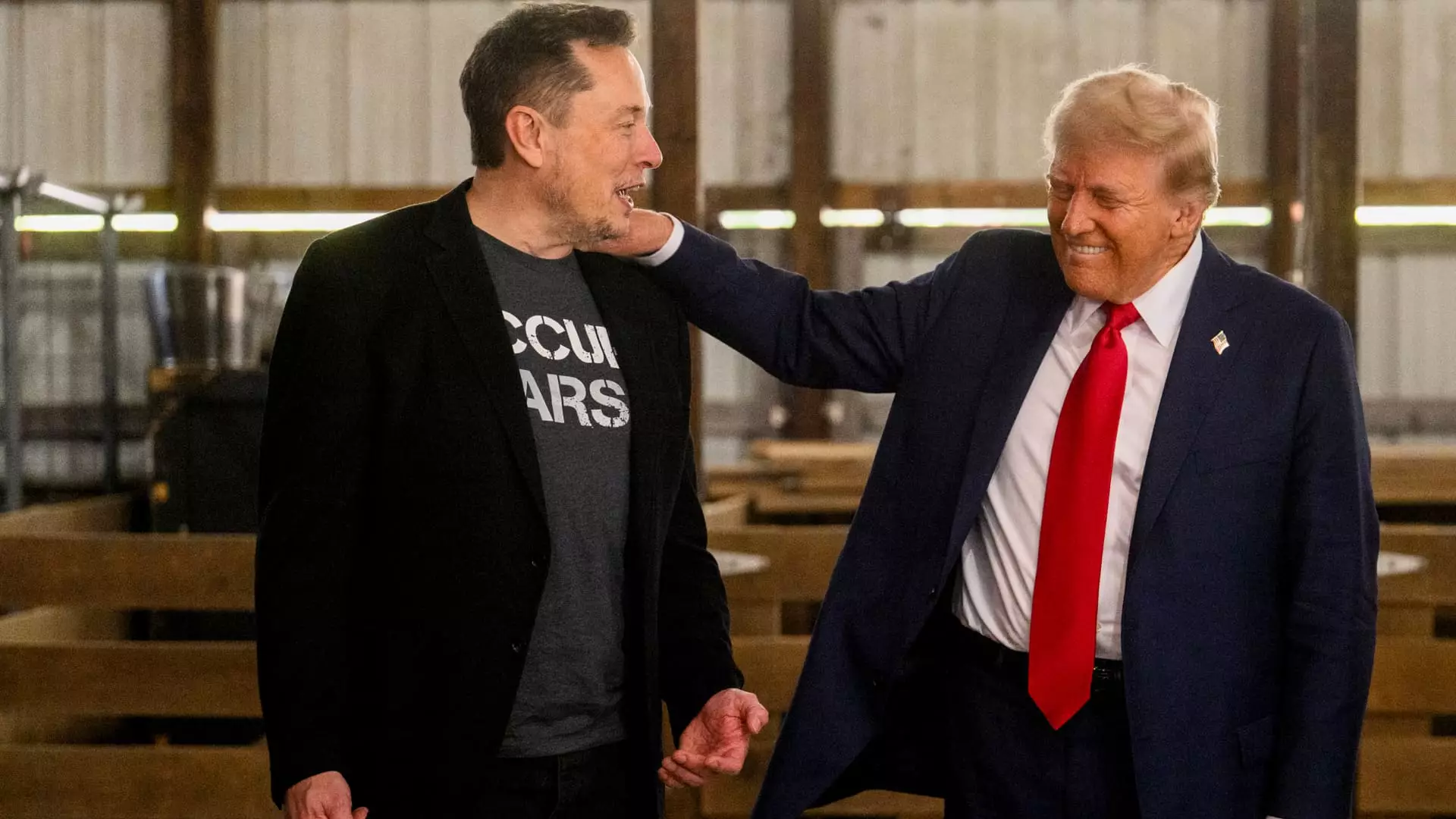Elon Musk, the billionaire CEO of Tesla and SpaceX, has established a significant foothold in the political arena, particularly during the transition period following the recent elections. His recent interactions with President-elect Donald Trump underscore the growing convergence of technology and politics. By closely aligning himself with Trump and his administration, Musk not only amplifies his own influence but also sets the stage for a complicated relationship with regulatory frameworks.
The partnership between Musk and Trump is illustrative of how influential business leaders can intersect with political masterminds. The duo’s recent flight from Florida to Washington D.C. for a crucial meeting with the House Republican conference marks a notable moment in this evolving relationship. For Musk, this engagement signals a strategic expansion of his influence within the corridors of power. Trump’s administration, heralded for its polarizing take on governance, could benefit from Musk’s expertise in technology and innovation. By being present in high-stakes discussions, Musk is not merely a passive observer but an active participant in shaping policies that could alter the future landscape of American governance.
This relationship underscores Musk’s role as a bridge between Silicon Valley and Washington D.C. His previous contributions to Trump’s campaign illustrate a significant investment in political capital that may yield dividends in the form of favorable policies for his enterprises. For the Republican Party, embracing Musk provides an opportunity to leverage his visionary ideas for modernizing government while appealing to a younger, tech-savvy constituency.
A New Commission: Dismantling Bureaucracy or Political Posturing?
In a striking development, Trump has appointed Musk and entrepreneur Vivek Ramaswamy to lead a proposed “Department of Government Efficiency.” The initiative aims to streamline governmental operations and dismantle bureaucratic red tape—a bold proclamation filled with the kind of bravado that particularly appeals to right-leaning audiences. Musk’s statement regarding this commission, promising to “send shockwaves through the system,” hints at a disruptive ethos that resonates with the spirit of entrepreneurial innovation.
However, skepticism exists regarding whether such lofty ambitions can translate into real change. The concept of dismantling government bureaucracy sounds appealing, but it raises questions about what mechanisms will be put in place to ensure accountability and effectiveness without compromising essential regulatory safeguards. The potential for government reform must navigate the complexities of political inertia and vested interests entrenched in the status quo.
The backdrop of these developments is a shifting political landscape. With Republicans poised to gain control of both the Senate and likely the House, the stage is set for a power struggle that will shape the future of governance. House Republicans are anticipated to nominate Mike Johnson as Speaker of the House, indicating a consolidation of power that aligns with Trump’s vision.
The contrasting ideology represented by the incoming Congress juxtaposes sharply with the policies of the previous administration led by President Joe Biden. Trump’s forthcoming meeting with Biden, a gesture aiming for a peaceful transition, also serves to spotlight the contentiousness surrounding the 2020 election cycle. The tension is palpable, and it becomes increasingly evident that Musk’s involvement may either help bridge divides or exacerbate them as political agendas clash.
The Broader Implications of Musk’s Political Engagement
Musk’s growing political engagement raises broader implications for the public perception of billionaires in politics. As individuals like Musk leverage their wealth and influence to shape policy, questions about the ethics of such involvement inevitably arise. Critics may argue that this consolidation of power in the hands of a few could lead to a disproportionate influence over political frameworks, thereby undermining democratic ideals.
Moreover, the absence of former first lady Melania Trump during this transition underscores the complexities of personal relationships amidst political maneuvering. Her office’s remarks reveal the delicate balancing act at play as various factions attempt to control the narrative surrounding the Trump presidency’s return to the White House.
The intertwining of Elon Musk’s business enterprises with the political maneuverings of Donald Trump represents a compelling, albeit controversial, chapter in American political history. As both figures navigate their respective roles, the outcome of this alliance remains uncertain, leaving citizens to wonder about the future of their democracy amidst the ever-evolving landscape of power and influence.



Leave a Reply